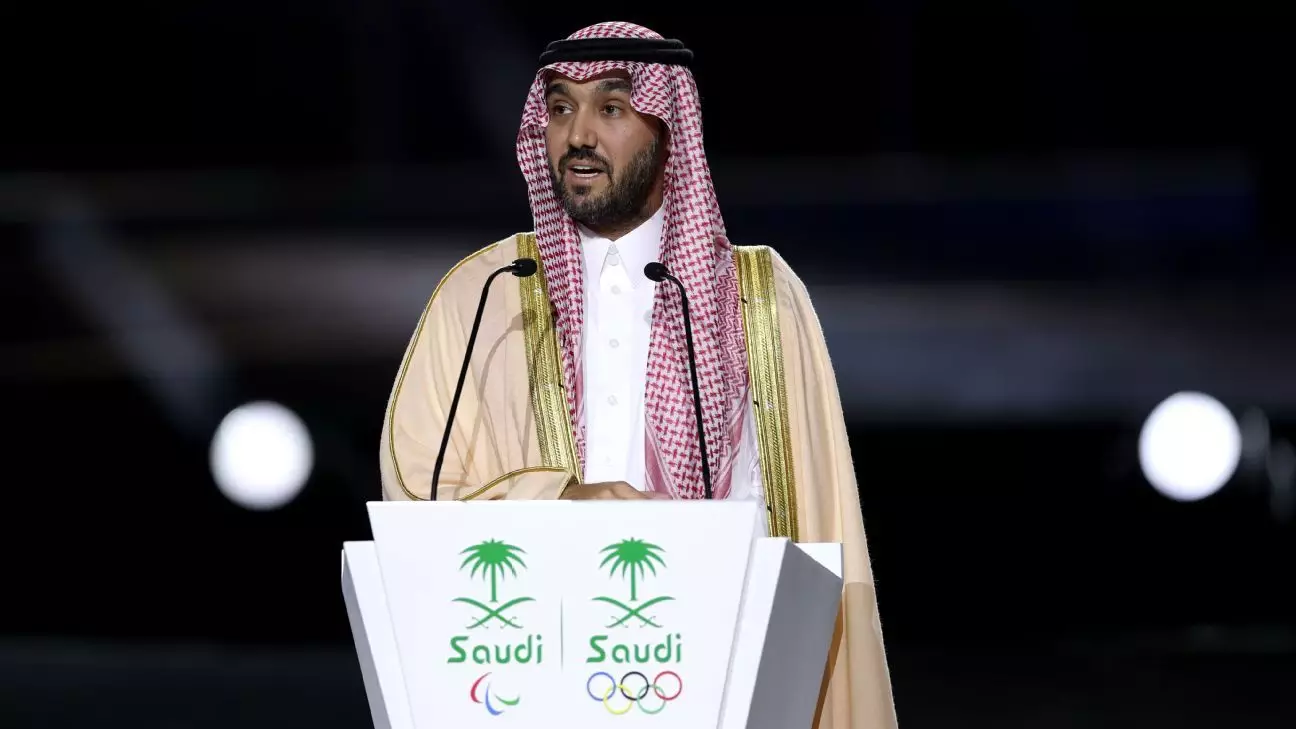Amid the jubilant anticipation for the 2034 World Cup, a darker narrative emerges. The death of Muhammad Arshad, a migrant worker who fell while working at the Aramco Stadium construction site, is not just a tragic incident; it reflects systemic failures embedded in the very infrastructure that supports lavish global sporting events. Saudi Arabia’s Minister of Sport, Prince Abdulaziz bin Turki Al-Faisal, assures that worker safety is being taken “seriously,” yet these statements must be scrutinized in light of ongoing and historical inconsistencies surrounding the treatment of migrant labor.
Migrant workers are often the unsung heroes behind transformative projects, but their sacrifices reveal a troubling dichotomy between national pride and human rights. The stark reality is that the infrastructure built in preparation for magnificent spectacles like the World Cup often comes at an immense personal cost to those laboring in harsh conditions, far removed from the celebratory atmospheres of stadiums and events.
Promises vs. Reality
Prince Abdulaziz proclaimed that every incident is taken with utmost seriousness and investigated thoroughly; however, this pledging of intent begs the question: how effective are these investigations when they are mere lip service to a systemic problem? The assertion that such incidents are unfortunate but commonplace fails to address the root causes of unsafe working environments in the construction sector. The more significant concern is not merely the occurrence of mishaps but the culture that tolerates a cycle of neglect in favor of rapid development.
International bodies, including FIFA, advocate not just for the grandeur of the game but also for a blueprint of change, particularly concerning issues of gender and labor rights. FIFA President Gianni Infantino has touted the upcoming tournament as a “unique catalyst for positive social change.” However, the cynicism surrounding his comments is palpable, as this rhetoric often glosses over the complicity of global organizations in perpetuating worker exploitation.
Learning from Past Mistakes
There is an undeniable need for introspection and real change, especially considering the international outcry over worker treatment during the 2022 World Cup in Qatar. The lessons learned from those harrowing experiences should serve as a guide, yet it is unclear whether Saudi Arabia is genuinely prepared to implement meaningful reforms. Al-Faisal emphasized discussions with Qatari officials about their own labor struggles, yet such conversations must translate into concrete actions that prioritize safety and dignity in the workplace.
A robust dialogue with labor rights advocates and transparent protocols for worker protection must become the cornerstone of preparations for the World Cup. The stakes are high; mistrust lingers, and the eyes of the world are focused on Saudi Arabia. Human rights groups have warned that the nation’s labor reforms are still embryonic at best, raising concerns about the sincerity of its commitments.
The Role of Global Entities
There is an urgent call for accountability among international organizations like FIFA that can no longer turn a blind eye. A landmark event like the World Cup must not only celebrate athletic excellence but also serve as a conduit for social justice. As fans gather to witness the spectacle, conditions for those who built the venues should not remain an afterthought buried beneath layers of corporate interests and nationalist pride.
FIFA’s endorsement of Saudi Arabia, particularly given its historical context of worker exploitation, has drawn ire from the global community. Institutionalized discrimination and the lack of legal protections for migrant workers must be addressed head-on, rather than swept under the rug. The rhetoric around positive change must evolve into definitive actions that safeguard the lives of those crucial to the success of this event.
A Call to Action
To claim that the 2034 World Cup can be a platform for progress without addressing systemic issues is a dangerous underestimation of the obstacles at hand. Saudi Arabia’s commitment to creating a safer, more equitable environment for all workers will define not just the preparatory phases of the tournament, but its legacy as well. When all eyes are on this developing nation, a renewed vigor in advocating for labor rights must emerge. Without such efforts, the gleam of the World Cup could be overshadowed by the grim reality many workers face, and the global community must demand that it does not let history repeat itself.

